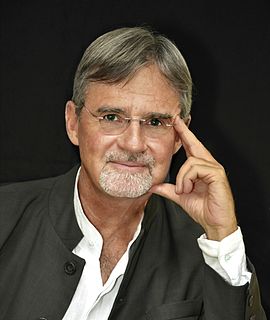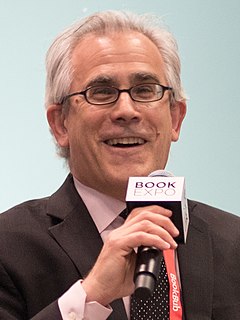A Quote by Jeane Kirkpatrick
I think that it's always appropriate for Americans and for American foreign policy to make clear why we feel that self-government is most compatible with peace, the well-being of people, and human dignity.
Related Quotes
The people and the warmakers are two distinct groups. We must never say 'we' when discussing the US government's foreign policy. For one thing, the warmakers do not care about the opinions of the majority of Americans. It is silly and embarrassing for Americans to speak of 'we' when discussing their government's foreign policy, as if their input were necessary to or desired by those who make war.
Pakistan is, I always feel, hopeful. You know, our system of government is not, and the system of foreign policy whereby we do whatever is asked of us as long as the price is right only proves to fundamentalist outfits and to militant groups that when we talk of things like democracy, when we talk of things like foreign policy, what we're really talking about is being pro-American.
Most Americans have no memory of the designs Franklin Roosevelt's New Dealers had for postwar-American foreign policy. Human rights, self-determination and an end to European colonization in the developing world, nuclear disarmament, international law, the World Court, the United Nations - these were all ideas of the progressive left.
Reagan gave essentially the same speech from the beginning to the end of his political career, which was always, 'The American people are great, the government always screws things up, let's get the government out of the way.' On the foreign policy side it was, 'Communism is bad, and we're going to defeat it.'
America's foreign policy supports freedom, democracy, and human dignity for all mankind, and we make no apologies for it. The opportunity society that we want for ourselves we also want for others, not because we're imposing our system on others but because those opportunities belong to all people as God-given birthrights and because by promoting democracy and economic opportunity we make peace more secure.
How can you raise the level of consciousness on this? How can you get the federal government to take the responsibility? Florida does not have a foreign policy. This is a federal policy or absence of federal policy. It's so clear that we're not being treated fairly. We have to come up with a solution. It hurts your head trying to figure out what to do.
The thing that should most concern us is a shift in American foreign policy. We have had a bipartisan belief in American foreign policy based on the post-World War II institutions that believed in democratic global world, which Russia and the Soviet Union was often seen as hostile to. And most Republicans and Democrats have always basically believed in this world order. Donald Trump and Vladimir Putin and maybe Marine Le Pen do not agree with this basic structure of the world.
This is the problem with foreign policy - talking about foreign policy in a political context. Politics is binary. People win and lose elections. Legislation passes or doesn't pass. And in foreign policy often what you're doing is nuance and you're trying to prevent something worse from happening. It doesn't translate well into a political environment.







































